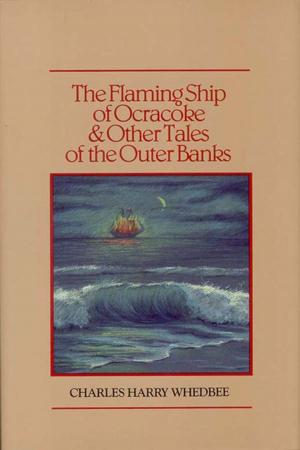Boys of the Battleship North Carolina
Nonfiction, History, Military, Naval, Americas, United States, 20th Century| Author: | Cindy Horrell Ramsey | ISBN: | 9780895875242 |
| Publisher: | Blair | Publication: | April 24, 2013 |
| Imprint: | Blair | Language: | English |
| Author: | Cindy Horrell Ramsey |
| ISBN: | 9780895875242 |
| Publisher: | Blair |
| Publication: | April 24, 2013 |
| Imprint: | Blair |
| Language: | English |
On July 11, 1942, the USS North Carolina steamed into Pearl Harbor. She was a magnificent ship—the first in a new class of battleships, simultaneously monstrous and fast. She was two-and-a-half-football-fields long and so wide she could barely pass through the Panama Canal on her journey to Hawaii. At any given time, 2,339 sailors manned the ship—a total of more than 7,000 during the six years she served. As she glided into the ravaged harbor, past the wreckage of sunken American ships, the morale of the men in the surviving Pacific fleet soared. A little over two years earlier, more than 57,000 people had gathered in the Brooklyn Navy Yard on the day she was launched. As she went through her “shakedown” period, she returned repeatedly to that same naval yard for adjustments and modifications. Many New Yorkers, including radio commentator Walter Winchell, often witnessed the ship entering and departing New York Harbor and began calling her the “Showboat.” Although she was an impressive structure, she was more than just a showboat. After coming to Pearl Harbor, she saw action in some 50 battles in almost every campaign in the Pacific from Guadalcanal to Tokyo Bay. In 1960, when the navy announced its intention to scrap the ship, North Carolina citizens, including countless schoolchildren, raised over $330,000 to bring the ship to Wilmington, North Carolina, and preserve her as a state war memorial. In this book, Ramsey tells the story of the battleship through the eyes of the men who served her. After doing research about the ship at the National Archives in 2000, Ramsey spent six days helping the staff of the memorial compile a living-history archive of personal interviews conducted with the surviving crewmembers when they attended the ship's annual reunion. She became fascinated with the stories these men told. For the next few years, she continued talking to the men to flesh out their stories. The result is this narrative about one of the most decorated American battleships in World War II, as seen through the eyes of the young sailors who matured into men while manning this floating fortress. As Ramsey says in her introduction, “Sailors know the difference between a fairy tale and a sea story. A fairy tale begins, ‘Once upon a time.’ A sea story starts simply, ‘Now, this is no bullshit.’ This book is a sea story.”
In the early 1960s, Cindy Ramsey was one of thousands of children who raised money to save the battleship North Carolina and bring it to Wilmington, North Carolina. Though her family was poor, her father made sure she and her siblings had money to take to school to help save the ship from becoming scrap. Ramsey grew up in Pender County, north of where the battleship now rests. She graduated with a B.A. in English in 1999 and an M.F.A. in creative writing in 2006, both from the University of North Carolina at Wilmington. Ramsey began writing and editing the Pender Post in February 2002, then purchased the newspaper that fall. She sold the newspaper and moved to Columbus, North Carolina, in 2006. She is now retired from the state community college system.
On July 11, 1942, the USS North Carolina steamed into Pearl Harbor. She was a magnificent ship—the first in a new class of battleships, simultaneously monstrous and fast. She was two-and-a-half-football-fields long and so wide she could barely pass through the Panama Canal on her journey to Hawaii. At any given time, 2,339 sailors manned the ship—a total of more than 7,000 during the six years she served. As she glided into the ravaged harbor, past the wreckage of sunken American ships, the morale of the men in the surviving Pacific fleet soared. A little over two years earlier, more than 57,000 people had gathered in the Brooklyn Navy Yard on the day she was launched. As she went through her “shakedown” period, she returned repeatedly to that same naval yard for adjustments and modifications. Many New Yorkers, including radio commentator Walter Winchell, often witnessed the ship entering and departing New York Harbor and began calling her the “Showboat.” Although she was an impressive structure, she was more than just a showboat. After coming to Pearl Harbor, she saw action in some 50 battles in almost every campaign in the Pacific from Guadalcanal to Tokyo Bay. In 1960, when the navy announced its intention to scrap the ship, North Carolina citizens, including countless schoolchildren, raised over $330,000 to bring the ship to Wilmington, North Carolina, and preserve her as a state war memorial. In this book, Ramsey tells the story of the battleship through the eyes of the men who served her. After doing research about the ship at the National Archives in 2000, Ramsey spent six days helping the staff of the memorial compile a living-history archive of personal interviews conducted with the surviving crewmembers when they attended the ship's annual reunion. She became fascinated with the stories these men told. For the next few years, she continued talking to the men to flesh out their stories. The result is this narrative about one of the most decorated American battleships in World War II, as seen through the eyes of the young sailors who matured into men while manning this floating fortress. As Ramsey says in her introduction, “Sailors know the difference between a fairy tale and a sea story. A fairy tale begins, ‘Once upon a time.’ A sea story starts simply, ‘Now, this is no bullshit.’ This book is a sea story.”
In the early 1960s, Cindy Ramsey was one of thousands of children who raised money to save the battleship North Carolina and bring it to Wilmington, North Carolina. Though her family was poor, her father made sure she and her siblings had money to take to school to help save the ship from becoming scrap. Ramsey grew up in Pender County, north of where the battleship now rests. She graduated with a B.A. in English in 1999 and an M.F.A. in creative writing in 2006, both from the University of North Carolina at Wilmington. Ramsey began writing and editing the Pender Post in February 2002, then purchased the newspaper that fall. She sold the newspaper and moved to Columbus, North Carolina, in 2006. She is now retired from the state community college system.















